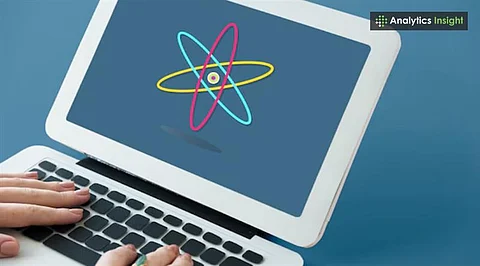

Quantum physics drives innovations in smartphones, medical imaging, and secure communication.
It’s not abstract - real-life applications of quantum theory are all around us.
From GPS to computers, quantum concepts power the technology we use every day.
Quantum physics in daily life often feels more like a realm reserved for labs, blackboards, and physicists. However, the fact is that most people don't even notice it. Quantum concepts are deeply involved in a wide range of applications, from the simplest to the most complex, including smartphones and secure banking.
Let's explore the common places where quantum physics is regularly at work and plays a starring role.
Billions of transistors pack a smartphone. Transistors are tiny switches controlling electrical signals. Quantum tunnelling principles, based on classical physics, enable these transistors to perform and allow electrons to pass through barriers they shouldn't.
Design principles based on quantum-scale behaviour are leveraged in Apple's A-series chips and Qualcomm's Snapdragon processors. Modern processing power will remain stagnant without the application of quantum mechanics in technology.
Google Maps can help avoid traffic, and atomic clocks are the reason behind the smooth experience. It is a clear consequence of the theory of quantum mechanics.
Atomic clocks are used by GPS satellites that operate using quantum transitions in atoms. These clocks operate precisely, losing only about one second every 100 million years. Without this accuracy, GPS will be off by several kilometers.
Internet banking and Encrypted messaging apps indirectly use quantum cryptography. Cryptographic systems in the mainstream still rely on classical approaches.
Researchers are already deploying quantum key distribution (QKD) in locations such as China and Europe. The best thing about it is that it is unhackable. Trying to intercept data changes that involve the quantum state of the particles provides immediate notification to the users.
It is one of the most exciting real-life applications of quantum theory, which may soon revolutionize global cybersecurity.
Quantum physics becomes even more vital in daily life when health is involved. Magnetic Resonance Imaging (MRI), used in hospitals worldwide, relies on nuclear spin, a quantum property of atoms.
MRI machines detect how hydrogen atoms in the body respond to magnetic fields, then translate that data into highly detailed internal images. Without understanding quantum spin and resonance, this life-saving technology wouldn't exist.
That red dot in the remote or the LED bulb lighting the room? Both involve quantum electrodynamics.
LEDs work when electrons drop from one energy level to another, releasing photons as a result of quantum energy transitions. Similarly, laser technology utilizes controlled photon emissions, which are grounded entirely in quantum mechanics.
Surprisingly, plants may use quantum coherence to move energy more efficiently during photosynthesis. Inspired by this natural process, researchers are applying similar quantum principles to boost solar panel efficiency.
The better we understand these quantum effects, the more energy-efficient technologies we can design for everyday use.
High-tech cars and fitness gadgets come with quantum sensors. These sensors measure the smallest of variations in gravity, magnetic fields, or acceleration. These sensors also enable autonomous driving, earthquake forecasting, and the detection of early symptoms of neurological disorders.
Quantum sensors could revolutionize industries beyond technology, with a market size of over $2.5 billion by 2030.
Also Read: Robots Identify Their Occupation in a Physical Location, But Researchers are Skeptical
So, the next time someone says quantum physics is too complex or only for scientists, remind them it’s already in their pocket. Quantum concepts in modern electronics guide their cars, protect their messages, and even help save lives in hospitals.
Understanding quantum physics in daily life is not about solving equations; it's about grasping the fundamental concepts that underlie them. It is about recognizing how invisible rules of nature influence the visible world. As technology continues to integrate into daily lives, quantum is shaping common experiences like never before.
